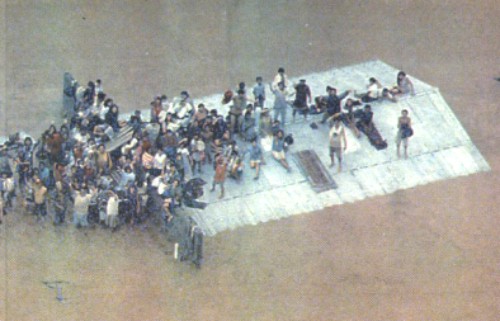[Ed.- I want to make sure that Judy's response to my post earlier today is not missed. I will respond in the comments. RP]
Roger,
I make it a practice not to blog, but i want to clarify your misreading of our meeting with Governor Bush. We went to extreme pains NOT to talk about policies or politics. We talked about the science and the risks to Florida. Governor Bush made the important point in our discussion that this whole issue has become very politicized, and said that we needed to take the politics out of this and get to the bottom of the scientific issue of hurricanes and global warming. I wholeheartedly agree.
The most important issue from Florida’s point of view is to understand whether the hurricane situation is likely to get worse. We said that there is a considerably risk that it will.
Florida and other coastal cities need to urgently reassess their risk to hurricanes to allow for the risk of increased hurricane activity. No matter what we decide to do about the greenhouse warming issue, the most vulnerable coastal cities need to reconsider their coastal engineering, land use practices, emergency procedures, etc. in view of the risk of increasing hurricane activity and the longer range prospect of sea level rise.
The prospect of increasing hurricane activity has overall raised people’s awareness of the global warming issue, but I don’t think that many people believe that anything we do re greenhouse gases in the short term will influence the problems that our coastal cities are facing particularly in the next few decades.
The media has often misrepresented my remarks, that is unfortunate but not unexpected I guess. The particular article you refer to was an accurate portrayal of our meeting with Governor Bush. Yes, there are a variety of advocacy groups in Florida that are trying to influence Governor Bush and others to adopt a variety of policies to reduce greenhouse gas emissions. Yes those groups believe that hurricanes can help raise awareness of the global warming issue. But no one that I know of is pushing greenhouse gas reductions as a policy to deal with increasing hurricane activity.
Judy
